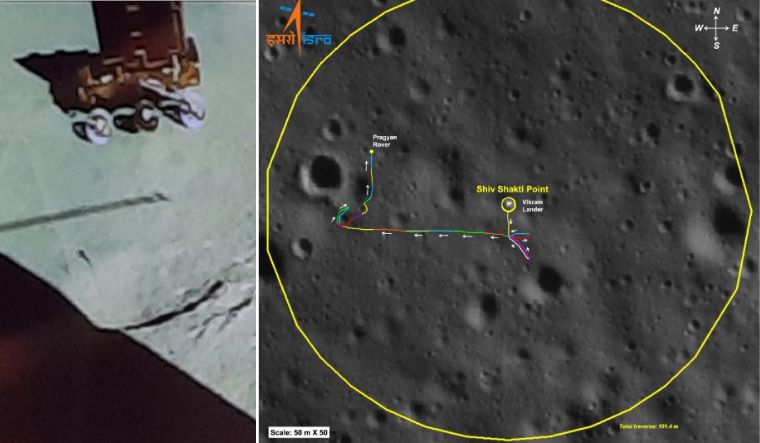ISRO has shared a new image showing Pragan Rover's journey on the moon as it has traversed 100 meters from the Shiv Shakti Point where the Chandrayaan-3 lander Vikram touched down on August 23.
On August 27, ISRO said the Pragyan rover had changed its path after coming across a crater on its way. ISRO tweeted, "The Rover came across a four-meter diameter crater positioned three meters ahead of its location."
The space agency added that the rover was commanded to retrace the path and was safely heading on a new path. It had shared a photo of the crater that the rover encountered and another photo that showed the path retraced by it.
Both the lander and rover will be active for 14 earth days from the landing when the lunar day comes to end. The following lunar night, a period of darkness lasting 14 earth days, the lander and rover will be inactive.
On August 31, ISRO released a video from Vikram's Lander Imager Camera, showing Pragyan rover rotating as it looked for a safer route.
In the video, the rover can be seen moving around. Comparing the rover's movement to a child playing on the lunar surface as Vikram lander watches affectionately like a mother, ISRO tweeted, "It feels as though a child is playfully frolicking in the yards of Chandamama, while the mother watches affectionately. Isn't it?"
On August 30, Pragyan rover sent an image of the Vikram lander using its navigation camera. “Smile, please! Pragyan Rover clicked an image of Vikram Lander this morning. The 'image of the mission' was taken by the Navigation Camera onboard the Rover (NavCam),” ISRO had tweeted back then.
Pragyan has already confirmed the presence of sulphur on moon's surface besides detecting other elements like aluminium, calcium, iron, chromium, titanium, manganese, silicon and oxygen.


